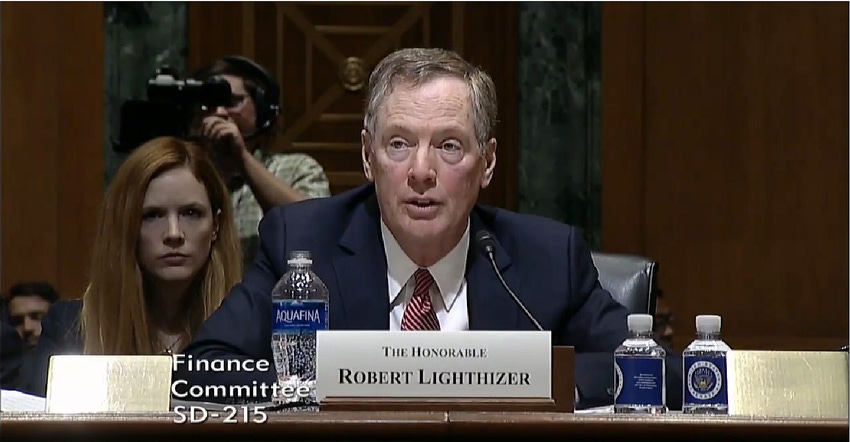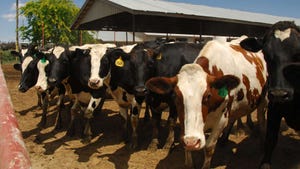Lighthizer promises NAFTA will not be step backwards
During Senate Finance Committee hearing, Lighthizer promises to make NAFTA agreement better without losing agricultural sales.

About the Author(s)
Policy editor, Farm Futures
Jacqui Fatka grew up on a diversified livestock and grain farm in southwest Iowa and graduated from Iowa State University with a bachelor’s degree in journalism and mass communications, with a minor in agriculture education, in 2003. She’s been writing for agricultural audiences ever since. In college, she interned with Wallaces Farmer and cultivated her love of ag policy during an internship with the Iowa Pork Producers Association, working in Sen. Chuck Grassley’s Capitol Hill press office. In 2003, she started full time for Farm Progress companies’ state and regional publications as the e-content editor, and became Farm Futures’ policy editor in 2004. A few years later, she began covering grain and biofuels markets for the weekly newspaper Feedstuffs. As the current policy editor for Farm Progress, she covers the ongoing developments in ag policy, trade, regulations and court rulings. Fatka also serves as the interim executive secretary-treasurer for the North American Agricultural Journalists. She lives on a small acreage in central Ohio with her husband and three children.
You May Also Like
Iowa turkey flocks confirmed with HPAI
October 23, 2023|2 Min Read
Recent Headlines
Enter a zip code to see the weather conditions for a different location.
Pioneering work paves the way for deeper understanding of how the plant immune system functions
April 29, 2024|2 Min ReadSyngenta Group reports decreases Q1 sales results
April 29, 2024|5 Min ReadUSDA-APHIS clarifies movement of cattle under HPAI guidance
April 29, 2024|1 Min ReadUSDA issues March Cold Storage report
April 29, 2024|2 Min Read



.png?width=300&auto=webp&quality=80&disable=upscale)

